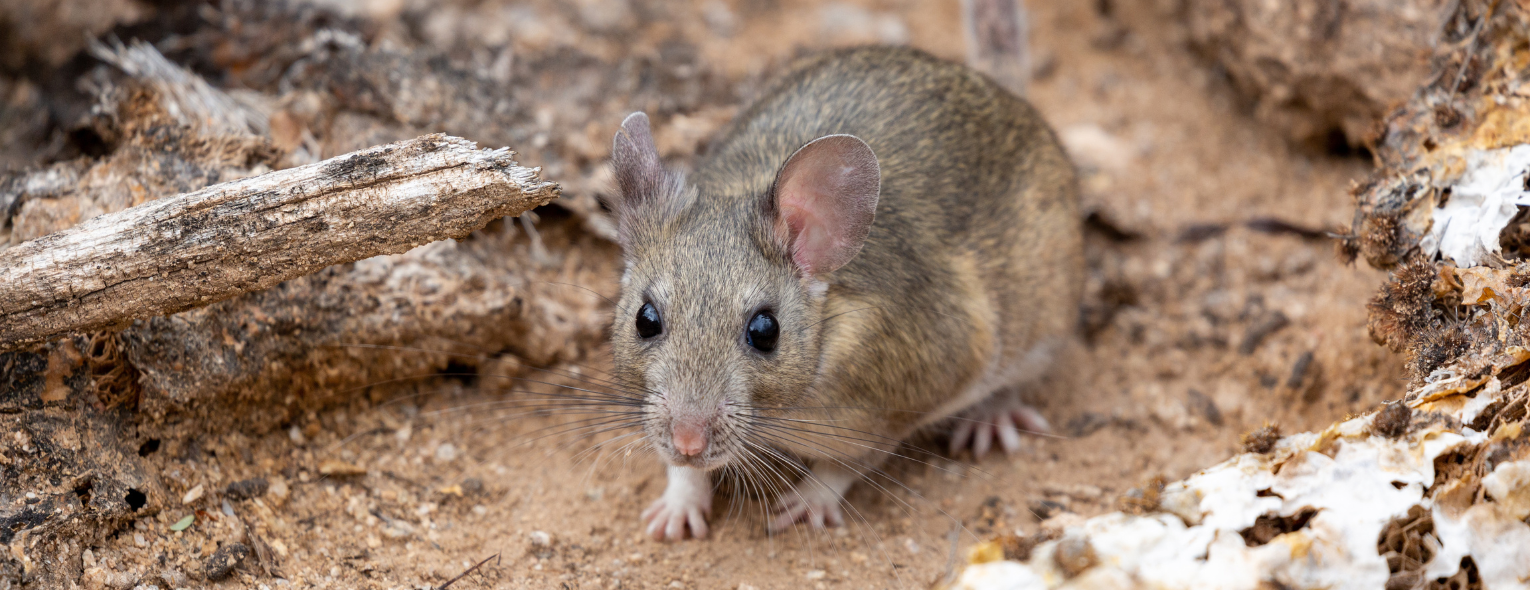How to Prevent Winter Rodent Infestations
Learn how to prevent winter rodent infestations with expert tips on blocking entry points, eliminating food sources, and protecting your home with the best pest control services in Arizona.
As temperatures drop in winter, rats and mice begin searching for warm, safe places to nest—and your home could be their ideal destination. Rodents are not only a nuisance but can also pose significant health risks and cause structural damage to your property. This guide will help you understand rodent wintering behavior and offer practical tips to keep your home pest-free.
Why Rodents Invade During Winter
While rodents are active year-round, winter creates the perfect storm for infestations. In colder months, they seek shelter indoors to escape the harsh weather and find easy access to food and water. Homes, garages, and sheds provide the warmth and sustenance rodents need to survive. Early prevention is key because rodents reproduce rapidly; a single pair can lead to dozens of offspring in just a few months. This turns a minor issue into a large infestation.
Rodents are resourceful creatures. They are expert climbers and burrowers, which means they can exploit vulnerabilities in your home you might not even notice. They often enter through small cracks in the foundation, gaps in roofing, or unsealed utility lines. Other common access points include vents, chimneys, and even gaps around garage doors.
Why Rodent Infestations Are Dangerous
Rodents do more than just create an inconvenience; they can pose serious risks to your health and property. Rats and mice are known carriers of diseases such as hantavirus, salmonella, and leptospirosis, which can be transmitted to humans through droppings, urine, and bites.
Additionally, their constant gnawing can damage electrical wires, increasing the risk of house fires, and ruin insulation or woodwork. Protecting your home from a rodent infestation isn’t just about comfort but safety.
Common Rodent Species in Arizona
In Arizona, the most common rodents homeowners face are Norway rats, roof rats, and house mice. Each species has unique behaviors and preferred nesting sites. For example, roof rats often enter homes through higher points like attics, while Norway rats are more likely to burrow near the foundation. House mice are particularly adaptable and can thrive in a variety of environments. Understanding the habits of these pests can help you better prepare for their prevention.
Signs of a Rodent Infestation
Before taking preventative measures, it's important to recognize the signs of an infestation:
Droppings near food sources, in cabinets, or along baseboards.
Gnawed wires, wood, or insulation.
Scratching noises in walls, ceilings, or attics.
A musky odor in hidden areas.
How to Prevent Rodents This Winter
There are a few easy ways you can curb the likelihood of an infestation in your home. Start by implementing these tips:
Seal Entry Points: Inspect your home's exterior for gaps, cracks, or holes, especially around doors, windows, vents, and utility lines. Rodents can squeeze through openings as small as a dime. You can use steel wool or caulk to block any potential small entryways.
Eliminate Food Sources: Store food in airtight containers, clean up crumbs and spills immediately, and ensure garbage bins are tightly sealed. Rodents are opportunistic and will exploit any food left out.
Declutter Your Home: Reduce clutter inside and outside your home, such as cardboard boxes, piles of firewood, or unused furniture, which can serve as hiding spots for rodents.
Inspect Your Roof and Gutters. Rodents often use overhanging branches or broken roof tiles to access attics.
Install Door Sweeps: Gaps beneath doors are a common entry point for rodents. Install door sweeps to close off these openings.
Clean Up Your Yard: In Arizona, citrus trees and other fruiting plants can attract rodents if debris is left on the ground. The same is true for leaf piles.
Check for Moisture Issues: Rodents need water to survive. Fix leaking pipes, clogged drains, and standing water near your home.
Schedule Professional Pest Control: Preventative measures are essential, but if you're dealing with a recurring rodent problem or want to ensure your home is fully protected, it's time to call the professionals.
How Varsity Termite and Pest Control Protects Your Home
At Varsity Termite and Pest Control, we use an integrated pest management (IPM) approach to ensure effective and eco-friendly solutions. Our team conducts a detailed inspection of your property, identifies entry points, and tailors a plan to your home’s unique needs. From exclusion techniques to baiting and trapping, we have the tools and expertise to keep your home rodent-free all winter long.
Looking for the best pest control in AZ? We proudly serve areas throughout Arizona, including Phoenix, Scottsdale, Chandler, Mesa, and more. Call (602) 833-7596 or fill out our contact form today!

